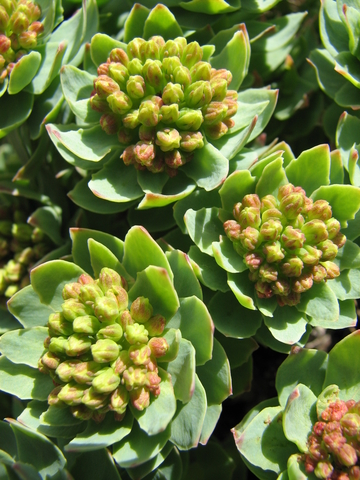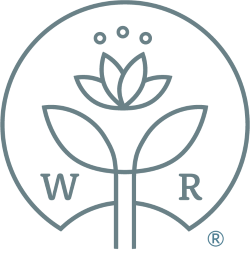Rhodiola Root

Also known as
Rhodiola rosea, Rhodiola kirilowii, Rhodea rosiola, roseroot, and golden root.
Introduction
Rhodiola is a perennial plant of the high altitudes of the northernmost reaches of Norway, Sweden, Finland, Iceland, China, Mongolia, Russia, and also of Tibet. It bears spikes of blue-green leaves bearing a single yellow flower that blooms during the brief arctic summer. The traditional folk medicine of the northerly nations where rhodiola is found used the herb for resistance to altitude sickness, infections during cold weather, anemia, erectile dysfunction, gastrointestinal ailments, and depression. Teas of rhodiola were standard treatment for colds and flu during winter. In some village in Siberia, a bouquet of rhodiola roots is still given to couples just prior to marriage to enhance fertility and to ensure the birth of healthy children.
For contemporary health benefits, please read here!
Constituents
Rosavin, rosin, rosarin and salidroside.
Parts Used
Root
Typical Preparations
Teas, tinctures, and encapsulations.
Summary
Like the better known eleuthero root, rhodiola is an adaptogen, enabling the body to maintain physiological balance during times of physical or mental stress. There is a substantial body of research that confirms that the herb confers numerous benefits to health, especially in normalizing the heart rate after exercise or stress. Russian researchers have found that extracts of rhodiola or Panax ginseng act in the same way as the drug Aricept in supporting cognitive function. In the brain stem, rhodiola compounds stimulate the release dopamine, norepinephrine, and serotonin into ascending pathways that activate the cerebral cortex, stimulating analyzing, evaluating, calculating, and planning functions. The stimulant effect then moves to the prefrontal cortex, where it contributes to memory functions including encoding, sorting, storage, and retrieval.
Precautions
A smaller dose of rhodiola is a stimulant, but a larger dose is a sedative. If you are seeking a boost to your immune system or you are treating depression, erectile dysfunction, or altitude sickness, try the smallest recommended dose first. If you are treating colds, flu, or stress, use a larger dose. Rhodiola is appropriate for depression, but it is not appropriate for bipolar disorder. Not recommended for use while pregnant.
PURCHASE RHODIOLA ROSEA ROOT EXTRACT
For educational purposes only. This information has not been evaluated by the Food and Drug Administration.
This information is not intended to diagnose, treat, cure, or prevent any disease. Unless otherwise stated, this information courtesy of MOUNTAIN ROSE HERBS, with full, written permission for reuse.







